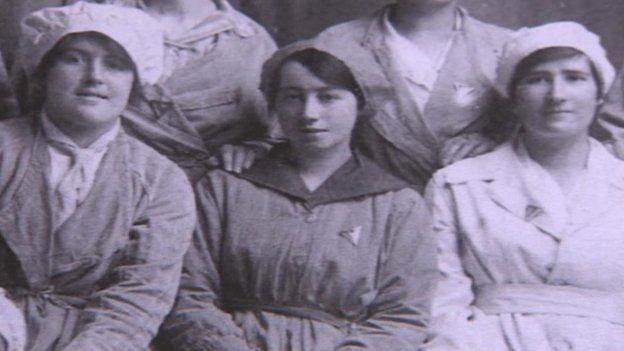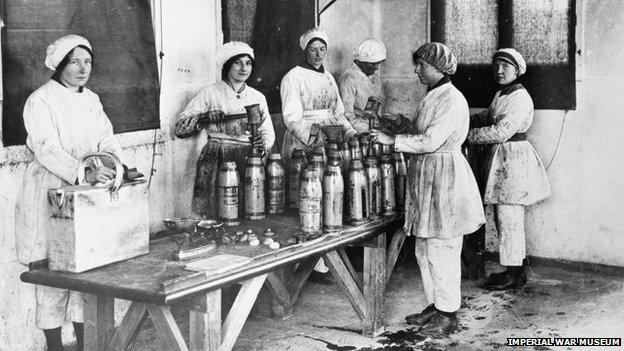Calls for memorial to Hereford's WW1 'canary girls'
- Published

Many of the women contracted toxic jaundice which turned their skin yellow
Campaigners are calling for a memorial for 6,000 people who worked in a World War One munitions factory in Hereford.
The workers at Rotherwas munitions factory included 4,000 women, who were known as the "canary girls" because many contracted jaundice through the work, which turned their skin yellow.
Historian Julie Orton-Jones believes more than 200 of the women died during the war.
Now a history group is calling for a permanent memorial.
The factory was constructed by the Ministry of Munitions and shell filling began there on 11 November 1916.
Workers were brought from all over Great Britain and Ireland.
At the factory's peak, almost 6,000 people worked there including 4,000 women.
Toxic jaundice
"It was very intense and dangerous work," said Neil Kerr from the Hereford Enterprise Zone, which now operates on the Rotherwas site.
"The recruits who came in were girls from the farms and domestic servants - they came in and they suddenly started getting real wages."
However, the chemicals in the explosives caused many of the women to contract toxic jaundice, which turned their hair and skin yellow and caused tooth decay.
Ms Orton-Jones from Herefordshire Lore, the history group which is campaigning for a permanent memorial, said some of the women had suffered lifelong health problems.
"It did affect them horribly with lung and throat infections," she said. "Some of them died - I believe around 210 in World War One. That's an awful lot of girls."
Barrington Mayne, whose mother Cissie was a munitions worker in World War Two, said he felt the factory's staff had been forgotten.
"Without their involvement, it would have been very difficult on the war front," he said.
"They did play a very crucial role and I think it's right to have a lasting memorial to all those men and women."
- Published2 June 2014

- Published1 June 2014
